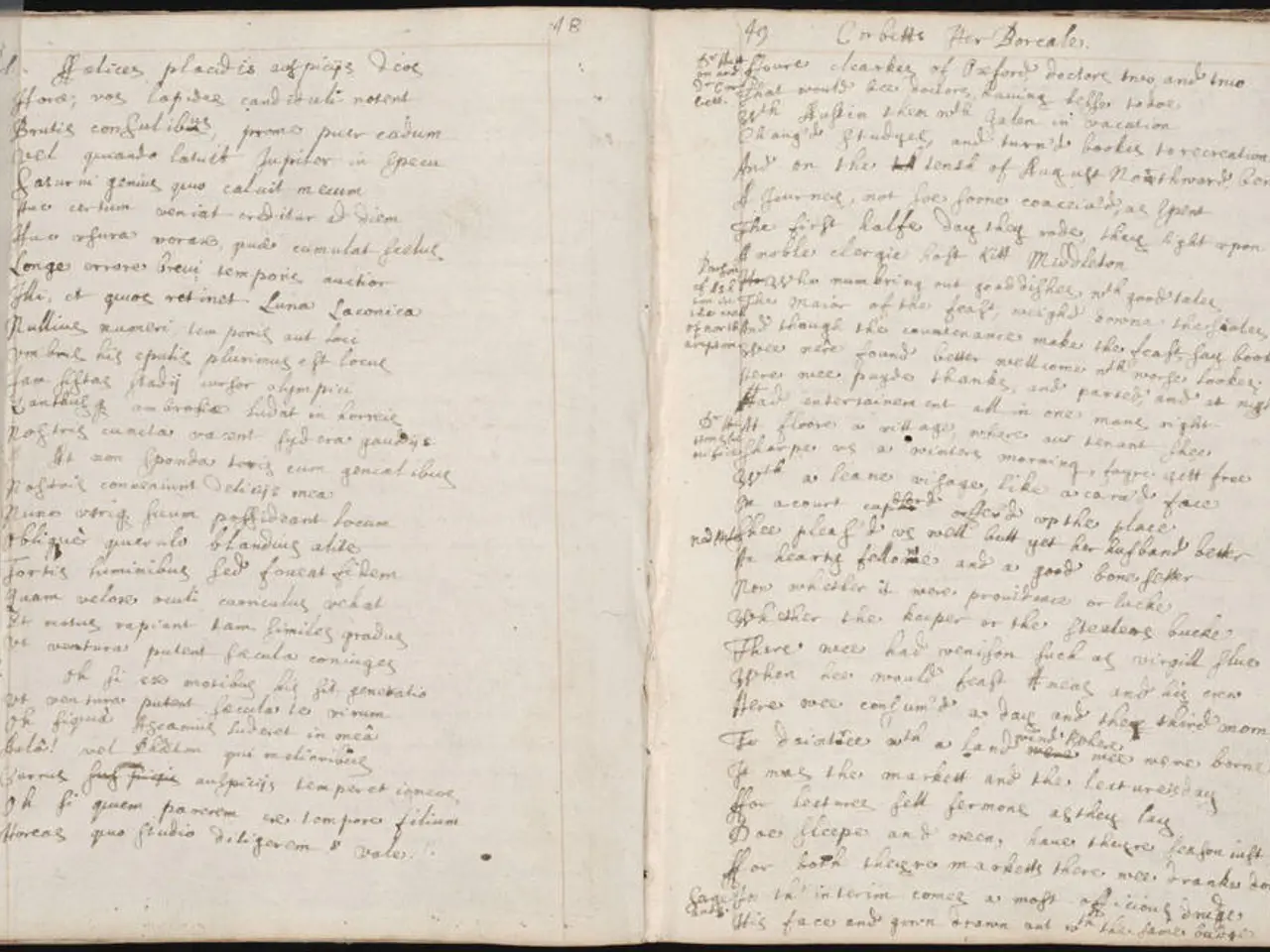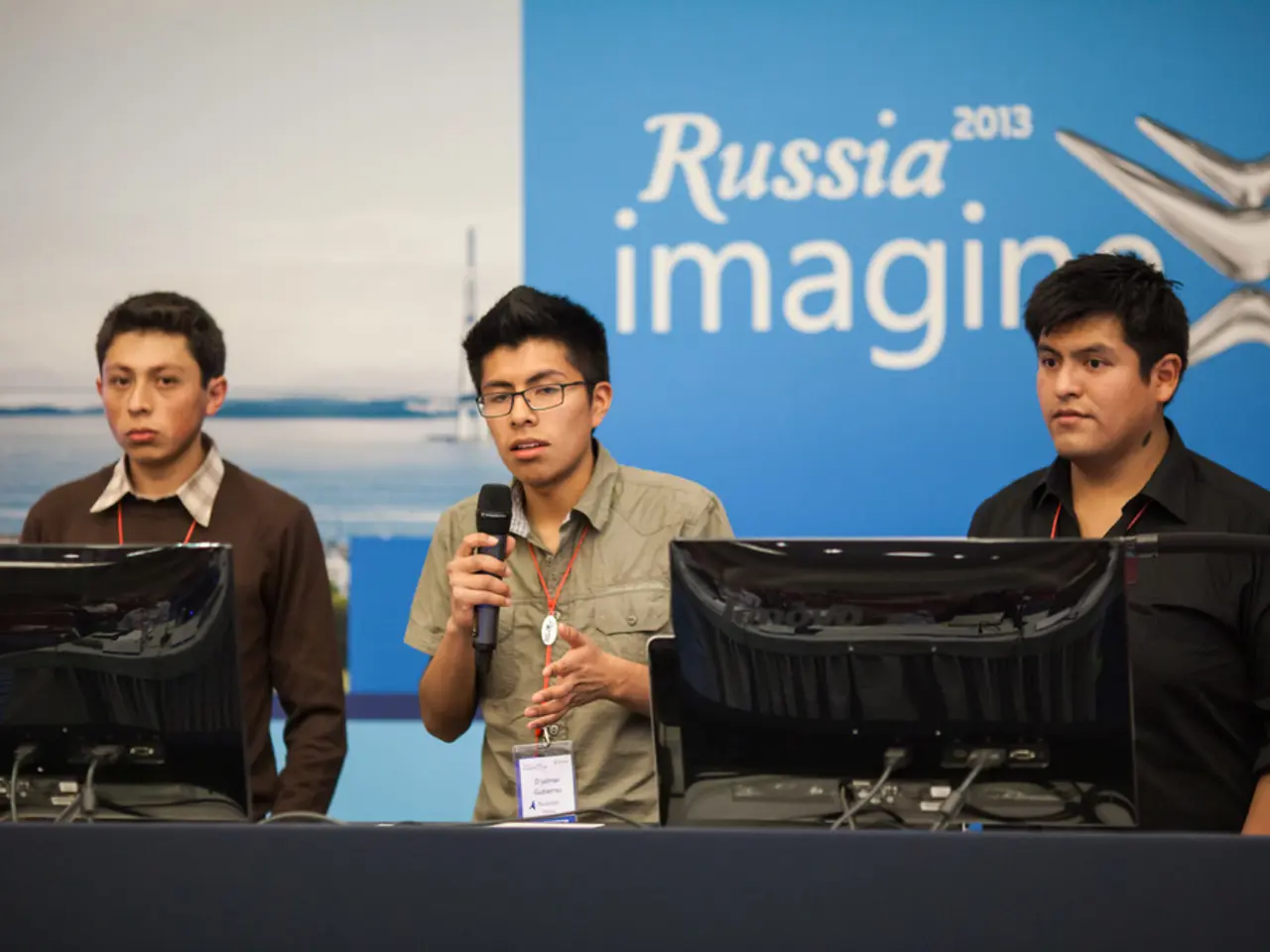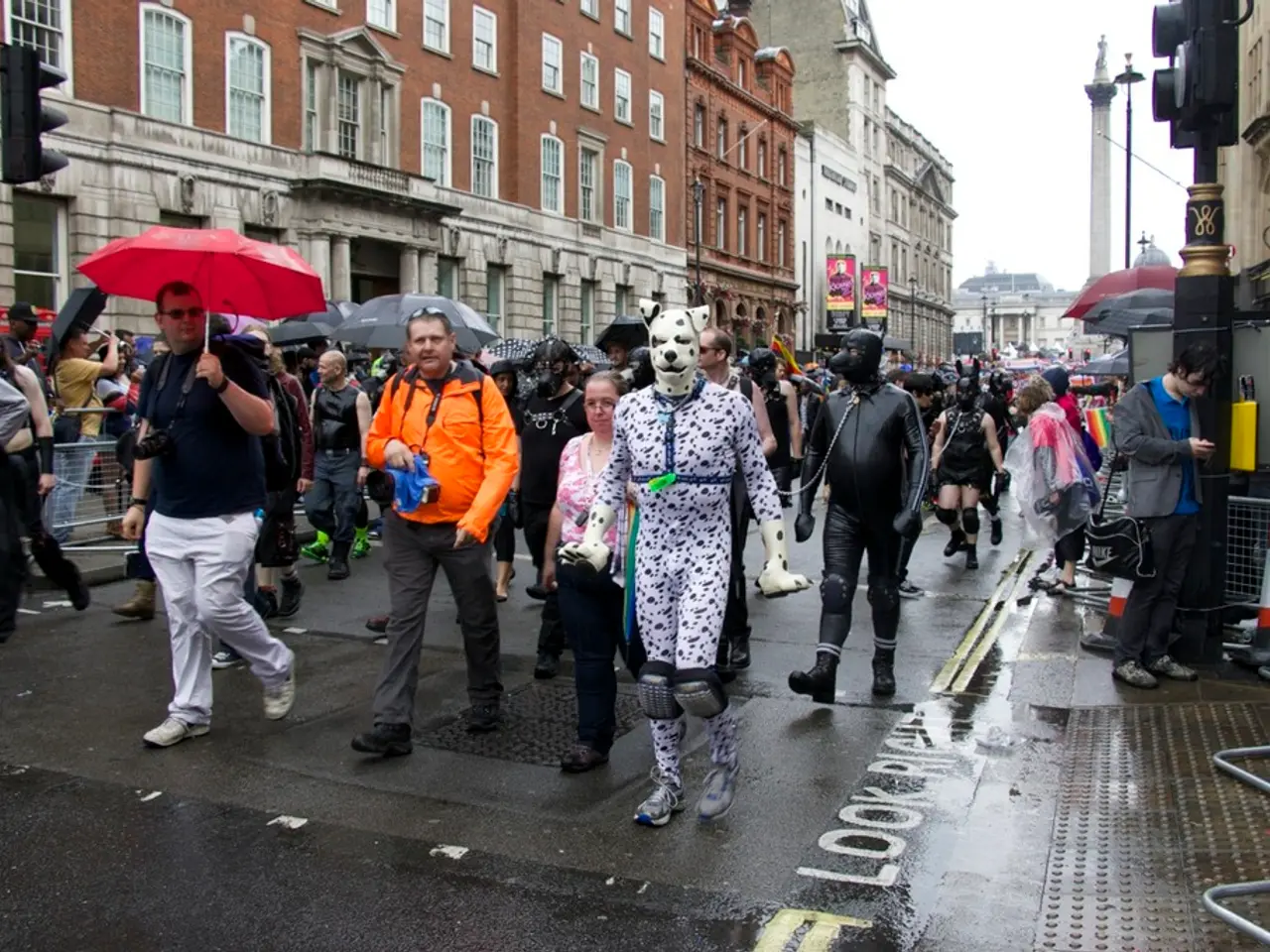United Kingdom: A Nation Appearing as the Homeland of the Liberated... Until One Dares to Voice an Opinion
In the current climate of the United Kingdom, the debate surrounding cancel culture is intensifying, with intense discussions over free speech and accountability dominating public and cultural spheres. This polarized landscape has been highlighted by voices like author Mike Fairclough, who argues that cancel culture is a modern-day inquisition enforcing rigid orthodoxy on topics such as gender ideology, climate alarmism, and diversity [1].
Fairclough criticizes cancel culture as a punitive system that stifles open debate, using examples like J.K. Rowling, who faced fierce backlash for expressing views on women's rights he considers reasonable. He contends that even in classrooms, terms like "boys and girls" are being replaced with more cautious language, and views government proposals targeting "offensive jokes" as further restrictions that undermine free speech and humor [1].
On the other hand, proponents of cancel culture argue that it serves as a tool for marginalized groups to hold powerful individuals or institutions accountable when formal systems fall short. The #MeToo movement is cited as a successful example of this corrective aspect. However, critics counter that cancel culture often devolves into a mob mentality that punishes without due process, engendering bullying and injustice [2].
In the cultural and entertainment sectors, responses to cancel culture are mixed. Some comedians, like Harry Hill, acknowledge public sensitivities and try to avoid causing offense, while others argue that comedy inherently involves risk-taking and touching on sensitive issues to provoke laughter and reflection. They resist what they see as overly cautious or politically correct pressures, viewing cancel culture as a challenge to artistic honesty and the freedom to explore uncomfortable truths through humor [3].
High-profile cases, such as the cancellation of Marilyn Manson's UK shows amid abuse allegations, illustrate ongoing tensions between demands for accountability and concerns over freedom of expression. Such incidents provoke public debate about where to draw the line between holding individuals responsible and giving due process, reflecting the broader societal struggle with cancel culture's implications [4].
The comparison to historical advocacy for free speech shows a shift in the landscape. Historically, free speech activism often emphasized broad protection of individual rights to express dissenting or unpopular opinions without fear of government suppression or formal censorship. Today's cancel culture, however, involves a more complex dynamic of power within social groups, digital communities, and media ecosystems [1][2][3][4].
This results in calls both to defend free expression and to ensure marginalized voices are protected from harmful rhetoric, revealing a tension between absolute free speech and social accountability. As the debate continues to evolve, shaped by political, cultural, and technological factors that differ markedly from historical free speech advocacy, the fundamental concern about who gets to speak and who gets silenced remains [1][2][3][4].
References: [1] Fairclough, M. (2021). Cancel THIS: A Survival Guide, Rebellious Handbook, and a Salute to Dissidents, Oddballs, and Anyone Who's Ever Been Told to Shut Up and Behave. [2] Kang, A. (2020). Cancel Culture: The New Puritanism. City Journal. [3] Hill, H. (2021). The Times. [4] BBC News. (2021). Marilyn Manson's UK shows cancelled amid abuse allegations.
- In response to the lively debate on cancel culture in the United Kingdom, the importance of maintaining free speech and truth, specifically with regards to digital identity and policy-and-legislation, should be balanced against the need for accountability, particularly as it pertains to marginalized groups.
- The ongoing tension between free speech and social accountability is further complicated by the role politics plays in shaping general-news narratives, with voices like Mike Fairclough arguing against the stifling effect of cancel culture on free speech and humor.
- While Amazon's cancellation of Marilyn Manson's UK shows illustrates the power of the cancel culture movement to hold powerful individuals accountable, some worry that it undermines the freedom of expression, depriving audiences of diverse perspectives and challenging artistic honesty.







